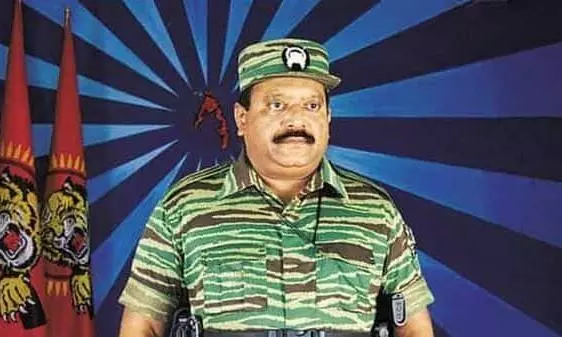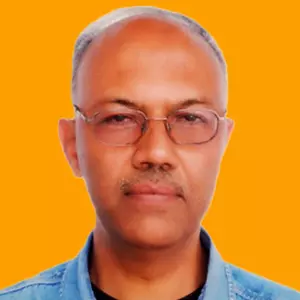
- Home
- India
- World
- Premium
- THE FEDERAL SPECIAL
- Analysis
- States
- Perspective
- Videos
- Sports
- Education
- Entertainment
- Elections
- Features
- Health
- Business
- Series
- In memoriam: Sheikh Mujibur Rahman
- Bishnoi's Men
- NEET TANGLE
- Economy Series
- Earth Day
- Kashmir’s Frozen Turbulence
- India@75
- The legend of Ramjanmabhoomi
- Liberalisation@30
- How to tame a dragon
- Celebrating biodiversity
- Farm Matters
- 50 days of solitude
- Bringing Migrants Home
- Budget 2020
- Jharkhand Votes
- The Federal Investigates
- The Federal Impact
- Vanishing Sand
- Gandhi @ 150
- Andhra Today
- Field report
- Operation Gulmarg
- Pandemic @1 Mn in India
- The Federal Year-End
- The Zero Year
- Science
- Brand studio
- Newsletter
- Elections 2024
- Events
- Home
- IndiaIndia
- World
- Analysis
- StatesStates
- PerspectivePerspective
- VideosVideos
- Sports
- Education
- Entertainment
- ElectionsElections
- Features
- Health
- BusinessBusiness
- Premium
- Loading...
Premium - Events

Video of woman claiming to be slain LTTE chief's daughter Dwarka has found takers among Lankan Tamils in West; in Sri Lanka, most Tamils have moved on
Fourteen long years after LTTE chief V Prabhakaran was killed fighting in Sri Lanka, his diehard supporters scattered in the West have not come to terms with his and his movement’s horrific demise, and continue to play with the sentiments of the mass of Tamils who adored, rightly or wrongly, the Tamil Tigers’ chief.
The latest drama in this continuing tragedy was a speech read out on November 27 – the day Prabhakaran used to give his annual Heroes’ Day address year after year – from an undisclosed destination by a saree-clad young woman who listeners were told was none other than Dwaraka, the dead guerrilla’s only daughter.
Screenshot of the video in which a woman claims to be Prabhakaran’s daughter, Dwaraka. Experts have told the Lankan government that the video is AI-generated.
Understandably, the video took innumerable Tamils in Sri Lanka and elsewhere by surprise and shock punctuated by a sense of disbelief.
After all, it has been widely known and believed that Dwaraka (spelt by some Tamils as Duvaraga) was killed along with her mother Mathivathani in the north of Sri Lanka shortly before Prabhakaran and his two sons – one elder to Dwaraka and the other younger – were slain. While the man who founded and headed the Liberation Tigers of Tamil Eelam (LTTE) and his older son Charles Antony were killed separately in fighting, the military is alleged to have shot dead the younger son Balachandran in cold blood after catching him although he was never a combatant.
The bodies of Madhivathani and Dwaraka were never seen and there have been no photographs, leaked or otherwise, of the two. Similar is the case with the LTTE’s intelligence chief, Pottu Amman, who too was killed in Sri Lanka but whose body too was never found. This has predictably given birth to plenty of rumours about the three.
But most Tamils I have spoken to believe that all of them were killed during the final days of the LTTE. A senior Sri Lankan Tamil journalist who had access to Prabhakaran when the latter was alive, told me when I visited Sri Lanka earlier in November that Prabhakaran saw the bodies of his wife as well as daughter. This is, however, not a version I have come across elsewhere.
Conspiracy theories
Sections of the Sri Lankan Tamil diaspora which actively supported the LTTE when it was fighting fit and which remain wedded to the lost cause have gone out of their way to insist that Prabhakaran was never killed in 2009. If their version is to be believed, then the body shown by the military with a deep gash on the forehead was a fake and the real Prabhakaran managed to give a slip and will make an appearance one day. This story has also found takers among a section of politicians in Tamil Nadu who have always hero-worshipped Prabhakaran.
Even before the November 27 video show, there were accusations that former activists in some Western countries were spreading the word that both Prabhakaran’s wife and daughter were living incognito in a European country – and raising money in their name. Some Tamils in Sri Lanka and abroad even claim to have spoken to the two women over telephone.
While much of this was a largely hush-hush affair, the speech by the purported Dwaraka caused quite a stir. In her 12-minute address, she accused unnamed “powerful countries” of backing Sri Lankan’s military blitzkrieg that destroyed the LTTE and said she looked forward to the day when she would return to the country to continue the battle for Tamil Eelam, albeit by peaceful means.
Can ‘Dwaraka’ turn the tide?
So, was the woman shown on November 27 really Prabhakaran’s daughter? Nothing that I know until now supports the theory. If LTTE supporters want the world to believe that Dwaraka is indeed alive and well, with or without her mother, they will have to come up with some solid and real evidence. In this age of artificial intelligence, or AI, a social media creation will raise many eyebrows. The world will want to know how Dwaraka, who was earlier enrolled in a university in Dublin before she decided to join her father, escaped from battle-scarred northern Sri Lanka in 2009 and why she kept out of sight for well over a decade when she had, by all accounts, violated no law of any land.
A huge gulf today separates diehard LTTE supporters living in the West and former LTTE fighters who surrendered in 2009 and have undergone what the Sri Lankan government calls a “rehabilitation” process. While some are politically active and some others are working for the Sri Lankan government, many ex-cadres live in the island’s north and east battling financial hardships.
None of the former LTTE guerrillas I have spoken to believe that Prabhakaran is alive. Indeed, some insist that claiming otherwise is an insult to a man who refused to surrender and went down fighting in his quest for an independent Tamil state. “It is because he did not escape and instead chose to get killed is why I still regard him as a God,” one former LTTE member told me earlier in November.
But those who have for long years raised money from a captive Sri Lankan Tamil society in the West when the war was raging in the island nation refuse to subscribe to what happened in May 2009. Tamils in Sri Lanka still have genuine grievances and of many varieties. It is also a fact that Colombo is not able to offer a genuine political reconciliation to the Tamil community despite earlier promises.
But, all said and done, an overwhelming majority of the Tamils are in no mood to embrace the LTTE again – even if it were to be led by a real or mysterious Dwaraka.


